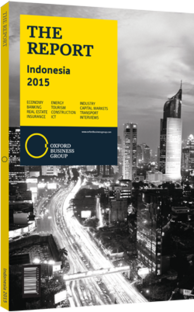Ay Tjhing Phan, Tax Leader, PwC, on tax implications for infrastructure investment: Viewpoint

With the new government having successfully reduced fuel subsidies and revised the national budget for FY 2015, the external focus is now expected to shift to the implementation of its plans for infrastructure development. That focus will likely be on the disbursement of additional funds for infrastructure spending and the efforts of the administration to leverage private sector investments and funds for such projects.
Some may wonder whether enough has been done from a tax policy perspective to create an investment environment conducive to greater private sector involvement. This requires an understanding of the sensitivity of infrastructure investors and financiers to tax as a cash cost and realising that Indonesia is competing for investment capital in a global market where the after-tax return can differentiate opportunities.
Some progress has been made, and the infrastructure investment community acknowledges that the current government has already demonstrated its responsiveness to investors via the 2015 revisions to the general income tax facilities under Government Regulation No. 18 (GR 18) and the issuance of Presidential Regulation No. 38 of 2015 (PR 38), which seeks to further develop infrastructure investment by way of public-private partnerships (PPPs). However, given that most immediate infrastructure investment remains outside the domain of GR 18 and PR 38, consideration of the broader tax framework and tax incentives for non-PPP infrastructure investment is warranted.
Infrastructure investment is more similar to the resource sector, which benefitted from well-regulated investment formats with established tax regimes, than routine investment in industrial projects, manufacturing or service activities. However, to date the tax arrangements for infrastructure investments have largely relied on general tax rules. For example, there are no special income tax rules that apply to infrastructure investments in power, water treatment, toll roads, ports or railways. While specific value-added tax (VAT) treatments exist in some cases, they are not always investor friendly.
Specific tax issues that can arise under the current tax law and concern infrastructure investors are various and include (but are not limited to): difficulty modelling long-term projects within a general investment framework, with no tax stability arrangements and uncertainty on minimum capitalisation requirements; a lack of specialised rules on asset classification for tax depreciation purposes; incremental project costs arising out of any VAT exemption; and potential for upfront tax costs on the acquisition of land for a project.
Furthermore, the relevant accounting rules may now require investors to recognise their arrangements as being of a leasing nature or a service concession arrangement, rather than the more conventional depreciable fixed asset. In Indonesia, where accounting treatment can be persuasive for income tax, this could have a significant impact on the project company. Given the sophistication of infrastructure investors and financiers and their need for clarity, there is a reasonable expectation that appropriate guidance on the tax impact of accounting changes should exist or be accessible.
Investors and financiers should also be more willing to consider the case for long-term investment. Recognition that, as in the resources sector, long-term infrastructure investment generates special tax issues and warrants specific tax policies could create greater investor interest and help build on current momentum.
Whether this takes place via the Ministry of Finance establishing a forum or body to engage investors or provide tax rulings or guidance, or results in targeted tax incentives (perhaps incorporating elements of the GR 18 approach or the “Pioneer Industry” incentives), such developments would communicate a positive message to the domestic and foreign investment community. It would demonstrate that Indonesia is serious about scaling up private sector involvement in infrastructure and willing to invest in developing an appropriate regulatory and policy framework for the taxation of infrastructure investments that is commensurate with the world-class scale and quality of opportunities it offers.
You have reached the limit of premium articles you can view for free.
Choose from the options below to purchase print or digital editions of our Reports. You can also purchase a website subscription giving you unlimited access to all of our Reports online for 12 months.
If you have already purchased this Report or have a website subscription, please login to continue.

